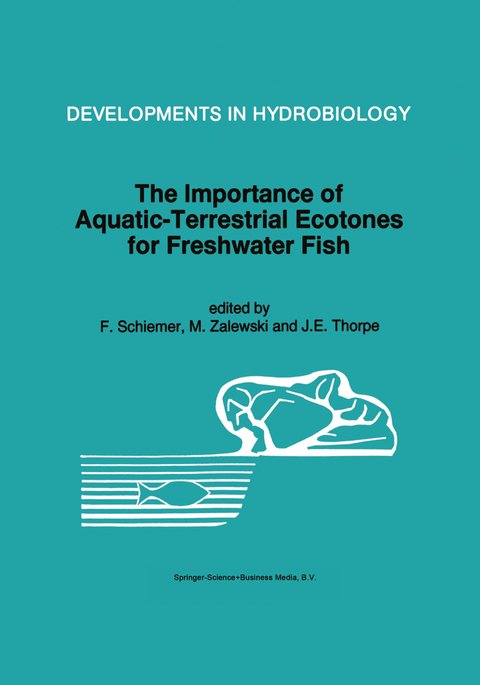
The Importance of Aquatic-Terrestrial Ecotones for Freshwater Fish
Springer (Verlag)
978-90-481-4515-7 (ISBN)
Notes on ecotone attributes and functions.- Ecotones in lakes and reservoirs.- Land/water ecotone effects in reservoirs on the fish fauna.- The role of ecotones as feeding grounds for fish fry in a Bohemian water supply reservoir.- Biomass of planktonic crustaceans and the food of young cyprinids in the littoral zone of Lake Balaton.- Biomanipulation by ecotone management in a lowland reservoir.- Relationship between the spatial scale and biotic variability in a wetland ecotone.- Streams.- Critical landscape attributes that influence fish population dynamics in headwater streams.- River/land ecotone: scales and patterns.- Riparian ecotones and spatial variation of fish assemblages in Portuguese lowland streams.- Morphological variability in the ecotone — an important factor for the conservation of fish species richness in Swiss rivers.- Ecotones and fluvial regimes in arctic lotic environments.- Microhabitat use by two small benthic stream fish in a 2nd order stream.- Large rivers and floodplains.- The dependence of fish community structure and dynamics on floodplain and riparian ecotone zone in Parana River, Brazil.- An outline of lateral fish migrations within the Central Delta of the Niger River, Mali.- The influence of high waters on stream fish populations in regulated rivers (Abstract).- Extension and role for fish populations of riverine ecotones along the Sinnamary river (French Guiana).- Management aspects of streams and rivers.- River restoration concepts — goals and perspectives.- The effects of recreated instream and ecotone structures on the fish fauna of an epipotamal river.- Effect of removal and regeneration of bankside vegetation on fish population dynamics in the Warta river, Poland.- Effects of siltation on stream fishes and the potentialmitigating role of the buffering riparian zone.- Evolutionary aspects.- Evolutionary adaptations by fish to ecotonal complexity in spatially variable landscapes — a perspective.- The genetic structure of roach populations in two contrasted large rivers.- The land/inland-water ecotones and fish population of Lake Valley (West Mongolia).- Zonation of a lentic ecotone and its correspondence to life history strategies in fish.- Epilogue.- Land/Inland water ecotones: intermediate habitats critical for conservation and management.
| Reihe/Serie | Developments in Hydrobiology ; 105 |
|---|---|
| Zusatzinfo | XII, 264 p. |
| Verlagsort | Dordrecht |
| Sprache | englisch |
| Maße | 178 x 254 mm |
| Themenwelt | Naturwissenschaften ► Biologie ► Evolution |
| Naturwissenschaften ► Biologie ► Limnologie / Meeresbiologie | |
| Naturwissenschaften ► Biologie ► Ökologie / Naturschutz | |
| Naturwissenschaften ► Biologie ► Zoologie | |
| Technik ► Umwelttechnik / Biotechnologie | |
| ISBN-10 | 90-481-4515-5 / 9048145155 |
| ISBN-13 | 978-90-481-4515-7 / 9789048145157 |
| Zustand | Neuware |
| Haben Sie eine Frage zum Produkt? |
aus dem Bereich


